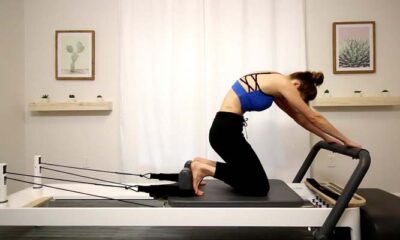Sleep Snoring
Sleeping When You’re Sick: 11 Tips and Tricks

Getting a good night’s sleep can be a real challenge when you’re sick. Whether you’re battling a cold, the flu, or something else, your symptoms can make it difficult to recover the rest your body needs. However, lacking sleep can prolong your illness and make you feel even worse. So, how can you sleep when you’re sick? Here are 11 tips and tricks to help you get the rest you need.
Elevate Your Head
If you’re congested or have a cough, elevating your head can help relieve your symptoms and make breathing easier. You can prop yourself up with pillows or use a wedge pillow to elevate your head and chest.
Use a Humidifier
A humidifier can add moisture to the air and help relieve congestion and coughing. It’s especially helpful if you have a sore throat or dry nasal passages. Be sure to clean your humidifier regularly to prevent mold and bacteria growth.
Drink Plenty of Fluids
Staying hydrated is essential when you’re sick, and drinking fluids can help soothe a sore throat and prevent dehydration. Water, tea, and clear broth are good choices. Avoid alcohol and caffeine, as they can interfere with sleep.
Take a Warm Bath
A warm bath before bed can help relax your muscles and relieve aches and pains. Adding Epsom salts or essential oils like lavender can also help promote relaxation.
Use a Nasal Rinse
A nasal rinse can help clear out mucus and relieve congestion. You can use a saline solution or a neti pot to flush out your nasal passages. Be sure to follow the instructions carefully to avoid injury or infection.
Try Acupressure
Acupressure is a technique that involves applying pressure to specific points on the body to relieve pain and promote relaxation. Applying pressure to the point between your eyebrows or the spot on the back of your hand between your thumb and index finger may help relieve congestion and promote sleep.
Avoid Screen Time Before Bed
The blue light emitted by electronic devices like smartphones and tablets can interfere with your body’s production of melatonin, a hormone that helps regulate sleep. Avoid using these devices for at least an hour before bed.
Create a Relaxing Environment
Creating a relaxing environment in your bedroom can help promote sleep. Keep the room cool, dark, and quiet. Use comfortable bedding and pillows, and avoid clutter and distractions.
Use Essential Oils
Essential oils like lavender, chamomile, and eucalyptus can help promote relaxation and relieve congestion. Add a few drops to a diffuser or mix them with a carrier oil and apply them to your skin.
Practice Relaxation Techniques
Relaxation techniques like deep breathing, meditation, and yoga can help calm your mind and promote relaxation. Try practicing these techniques before bed to help you fall asleep faster.
Consult Your Doctor
If your symptoms persist or interfere with your ability to sleep, consult your doctor. They may recommend over-the-counter or prescription medications to help relieve your symptoms and promote sleep.
In conclusion, getting a good night’s sleep is essential when you’re sick, and there are many tips and tricks you can try to help promote rest and recovery. Elevating your head, using a humidifier, drinking plenty of fluids, taking a warm bath, using a nasal rinse, trying acupressure, avoiding screen time before bed, creating a relaxing environment, using essential oils, practicing relaxation techniques, and consulting your doctor are all strategies you can use to help you sleep when you’re sick. Remember, everyone’s body is different, so what works for one person may not work for another. Experiment with different strategies and find what works best for you.
FAQs
Is taking medication to help me sleep when I’m sick okay?
It’s always best to consult your doctor before taking any medication, especially if you’re sick. They can recommend over-the-counter or prescription medications that are safe and effective for your symptoms.
Should I avoid exercise when I’m sick?
Avoiding exercise when you’re sick is generally recommended, as it can worsen your symptoms and delay your recovery. However, light stretching or gentle yoga may help promote relaxation and reduce muscle tension.
Can drinking warm milk before bed help me sleep when I’m sick?
Warm milk contains tryptophan, an amino acid that can promote relaxation and sleep. However, the effect of warm milk on sleep is not well-studied, and the evidence is mixed. If warm milk helps you feel more relaxed and comfortable, it may be worth a try.
Should I nap during the day if I’m not sleeping well at night?
Napping during the day can disrupt your nighttime sleep and make it harder to fall asleep at night. If possible, stay awake during the day and save your sleep for nighttime. If you must nap, keep it short (no more than 20-30 minutes) and avoid napping too close to bedtime.
How long should I wait before going to bed after eating?
It’s generally recommended to wait at least 2-3 hours after eating before going to bed, especially if you’ve had a large or heavy meal. Digestion requires energy, and lying down can interfere with the process, leading to discomfort and indigestion.
-
Health A-Z4 years ago
Different Types of Healthcare Systems
-
Supplements3 years ago
Looking For the Best Boswellia Supplement?
-
Fitness4 years ago
Pilates Reformer Compared to the Tower: Which Should You Choose?
-
Healthcare Systems3 years ago
How Administrative Tasks Adversely Affect Physicians And Patients







